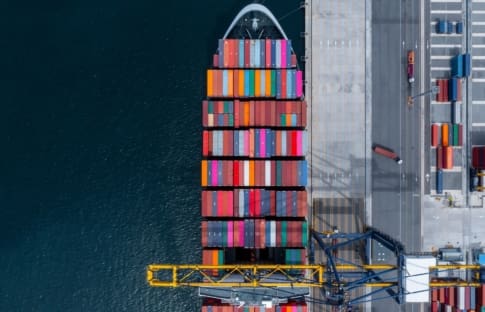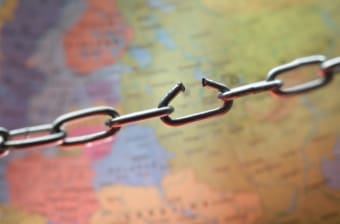On October 17, The Hamilton Project and the Peterson Institute for International Economics hosted a webinar to discuss the economic implications of across-the-board tariffs. The event featured a panel discussion with Wendy Edelberg (The Hamilton Project), Jason Furman (Harvard University and Peterson Institute for International Economics), Maurice Obstfeld (Peterson Institute for International Economics and University of California, Berkeley), and Ana Swanson (The New York Times).
Across-the-board tariffs could increase prices, reduce employment, and create chaos
Overall, the panelists agreed that across-the-board tariffs would likely increase prices and reduce employment. As Obstfeld said at the beginning of the event, “Tariffs are not a tax on foreigners, they are a tax paid by U.S. households and businesses.”
Additionally, the panelists stated that across-the-board tariffs are unlikely to increase U.S. manufacturing employment—an argument often invoked in support of tariffs—for a number of reasons, including higher input prices and retaliation.
“Tariffs are not a tax on foreigners, they are a tax paid by U.S. households and businesses.”
– Maurice Obstfeld
Edelberg added that significant and wide-ranging tariffs would not only increase inflation and reduce employment but also create near-term chaos. Specifically, she described the potential for “chaotic responses” from businesses, including a scramble to renegotiate contracts and hoard imported goods.
Across-the-board tariffs are starkly different from tariffs on China
Swanson then asked the panelists about the Biden administration’s decision to maintain, and in some cases expand, the Trump administration’s tariffs on China. Furman and Obstfeld highlighted unique considerations regarding trade with China, including concerns about national security and unfair trade practices, in contrast to levying tariffs against all countries. Furman noted, “If you’re serious about China, you focus on China, you don’t do something across the board.”
Further, Obstfeld warned that universal tariffs would be “a grenade thrown into the [trading] system” and could create a free-for-all in which countries no longer adhere to trade norms and rules. This could discourage international investment and trade, leading to “a very impoverished world.”
Across-the-board tariffs are an inefficient way to raise revenue
Next, Edelberg and Obstfeld argued that tariffs are an inefficient, regressive, and outdated method for raising revenue. The federal government’s capacity to raise revenue through income taxes has greatly expanded (thanks to improvements in income tracking and the passage of the 16th Amendment), allowing for a more progressive and equitable system.
The panelists also discussed that proposed tariffs could create a frenzy of requests for exemptions, which could lead to further uncertainty, inequity, and inefficiency.
Conclusion
The event concluded with a wide-ranging discussion of the uncertainty and ambiguity surrounding, and arising from, tariffs. The panelists discussed the challenges of predicting whether and how tariffs would be implemented, how the legal system would respond, which products or sectors would be most impacted by tariffs, how businesses would respond, and more. Nevertheless, the panelists stressed the importance of taking the proposed tariffs—and their potential economic effects—seriously. As Edelberg said, “It matters, and it will be disruptive.”
This is an event summary of “How would across-the-board tariffs create chaos in 2025?”




